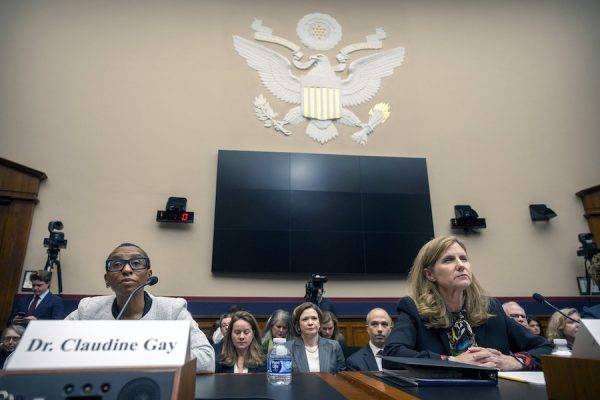Had Brock admitted guilt and remorse and offered to settle early on, I would have considered a lighter sentence, respecting his honesty, grateful to be able to move our lives forward. Instead he took the risk of going to trial, added insult to injury and forced me to relive the hurt as details about my personal life and sexual assault were brutally dissected before the public.
If only Stanford University student Brock Turner had apologized, the woman he stripped, humped, fingered, and left half naked on the ground would have let it be. She would even have respected her assailant.
Aside from the quiverful of sentences, each piercing the heart in a different place with their evocations of sexual violation, the extraordinary thing about the victim’s impact statement is its writer’s attempts to forgive. What is saddest—again, aside from the assault itself—is the lost opportunity to deploy forgiveness to change the man. While thousands sought revenge on her part—including removal of the judge who sentenced Turner to just six months in jail—the woman struggled to figure out what would be just.
As this is a first offence I can see where leniency would beckon. On the other hand, as a society, we cannot forgive everyone’s first sexual assault or digital rape. It doesn’t make sense.
It didn’t make sense, yet she turned it over and over in her mind and in her text, trying to make sense of it.
And after an excruciating year awaiting trial, after the hell of the trial itself, she held out hope that an apology would come.
You are guilty [she wrote, addressing Turner]. Twelve jurors convicted you guilty of three felony counts beyond reasonable doubt. . . . And I thought finally it is over, finally he will own up to what he did, truly apologize, we will both move on and get better.
But he didn’t own up. Instead he blamed the booze. He blamed a campus culture of “promiscuity.” And she instructed him, over and over:
This is not a story of another drunk college hookup with poor decision making. Assault is not an accident. Somehow, you still don’t get it.
She wanted Brock Turner to name the harm he did. She just wanted him to get it.
Given the circumstances, this request is astonishingly gracious. Given the history, it is maddeningly familiar. In 1991 Anita Hill sat before an all-white, all-male Senate Judiciary Committee and recounted the protracted sexual harassment Supreme Court nominee Clarence Thomas had subjected her to. Like Turner’s victim, Hill endured humiliation, as if she were the one on trial. Like Turner, Thomas declared himself the victim. But unlike Turner’s victim, Hill—who not incidentally, is Black—was not believed. And Thomas was confirmed.
She suffered a year in purgatory. He learned—and probably will learn—little or nothing.
Like the events at Stanford, the Hill-Thomas confrontation sent women into a fury of optimistic feminist action: scores of new candidates for office; a cross-country “freedom ride” to register pro-choice voters; a full-page New York Times pledge to fight sexism, signed by 1,600 African-American Women in Defense of Ourselves. But there was also weariness in their slogan, which today would have a hashtag: “They just don’t get it.”
Actually, even then, the phrase could have been more like the Stanford victim’s: “They still don’t get it.” The first feminist rape speak-out had taken place twenty years before Hill’s testimony, in New York in 1971.
Forty-five years later, some of them do get it. There are, of course, the Swedes who rescued the woman, two men raised in a sex-loving culture in which the scene they encountered—a man standing over and photographing a naked, battered, and unconscious woman—is incomprehensible.
There are guys like the pastor John Pavlovitz, who published a blog post addressed to Brock’s father that—like everything else in this case—went viral. Referring to the letter the elder Turner wrote to the judge, Pavlovitz said he understood the father’s desire to “humanize” his son by talking about his hobbies and his favorite foods. But, wrote the pastor, “Brock is not the victim here. His victim is the victim. She is the wounded one. He is the damager. . . . There is no scenario where your son should be the sympathetic figure here.”
In a follow-up post, Pavlovitz outlined ways to end sexual violence. Among these: “Work in your community, nationally, and globally to demand better protections for women, and greater, more consistent punishment for those found guilty of sexual assault against them.”
In 1991 the demand was for more freedom for women, not just from violence but also from sexual oppression. Even Republicans were pushing their party to chop the anti-abortion plank from its platform. Today the demand is for more punishment of offenders. But we already have much more punishment, thanks to decades of pressure from “carceral feminists” who put their trust in state violence to achieve freedom from interpersonal violence. Since then, others—even some who fought for lawmakers to meet the seriousness of rape with more serious penalty—have rued that strategy.
What we’ve learned is that state-administered retribution falls largely upon the poor, Black, and brown, including marginalized women. It cannot accomplish what Turner’s victim wanted: that her assailant understand and take responsibility for the harm he did to her and to the trust and peace of the community.
The adversarial criminal system won’t allow that transformation. No defense attorney permits a client to apologize to the victim; that would be an admission of guilt. On the other side, prosecutors are usually hostile to non-criminal resolutions. Convictions get them elected.
Nor can this woman or other victims of sexual assault get that kind of satisfaction under federally promulgated campus procedures. The Dear Colleague Letter sent out by the Department of Education’s Office for Civil Rights (OCR) in 2011 allows mediation “for resolving some types of sexual harassment complaints,” but when sexual assault is alleged, it “is not appropriate . . . even on a voluntary basis.” This has chilled efforts to find alternatives to the current two procedures: administrative tribunals that operate free of constitutional protections, or, as in this case, criminal prosecution, which doesn’t do much better.
In Palo Alto two letters traveled parallel routes to the court mailbox. The victim read her attacker’s statement, but he does not seem to have seen or heard hers until she read it aloud at the sentencing hearing. She had no opportunity to confront him face to face with his selfishness or challenge his misapprehensions. She didn’t get a chance to make him get it.
She suffered a year in purgatory. He learned—and probably will learn—little or nothing. And sexual violence continues as usual.
There is another way. The practices that fall under the rubric of “transformative” or “restorative” justice support survivors’ healing while creating a space for offenders to be accountable for their actions and take steps to lessen the chances they will harm again. Restorative justice isn’t just personal; it is collective. Truth and reconciliation commissions like those in South Africa and Chile are restorative practices. They give victims a platform to speak bitterness; they engage broader circles in deciding just and useful restitution; and critically, they seek to bring the harm-doer back into the community and help him embrace the values he has transgressed. It is assumed that everyone is potentially redeemable.
One thing we know is that what we’re doing—caging and surveillance—does not work.
Pace Pastor Pavlovitz, there is a scenario in which Brock Turner can be a sympathetic figure. That doesn’t mean his actions are excused; it doesn’t mean he’s pitied, or even necessarily liked. Sympathy is feeling with—the understanding that we’re in this together.
A recent report from a new international group of restorative justice practitioners called Campus PRISM (Promoting Restorative Initiatives for Sexual Misconduct on College Campuses) takes advantage of the Feds’ vagueness on mediation to press for the adoption of restorative programs on campuses. Not only might this be better for individuals, it says, but these practices can be “used for community building to establish appropriate standards of sexual conduct on campus, reduce fear, and counteract the hostile climate often characterized as ‘rape culture.’”
Among the founding principles of restorative justice is that all of us have done harm and all of us have been harmed. Some harm is worse than others, so the acts of accountability must be more serious. What is the appropriate way to hold a sexual assailant accountable? There’s no single answer. But one thing we know is that what we’re doing—caging and surveillance—does not work.
Those outraged by Turner’s negligible jail term mostly neglect to note that he will have to register as a sex offender for life. The victim suggests this is appropriate—that he will carry an equivalent burden to hers, an experience that “stays with me, [is] part of my identity [and] has forever changed the way I carry myself, the way I live the rest of my life.”
It remains to be seen how she will live the rest of her life. If she lives it as she has since the attack, she will be brave, generous, and political. “Sexual assault victim” will be a part of her identity, but hopefully less and less of it.
Meanwhile, if Turner’s life is anything like those of the 850,000 people already on U.S. sex offender registries, he will be assigned one identity and banished from society because of it. He will be hounded, unemployable, isolated, and fatalistic. This is a disproportionate sentence for the offense he committed, or any offense. It is pure vengeance, and it does not reduce crime.
Most people have read Turner’s letter to the judge as they’ve seen the assault—the expression of a man unable to care about anyone but himself. Indeed, there’s lots of “poor me” in it. He can’t sleep or concentrate; he torments himself. He shakes uncontrollably. And so on. But his suffering is also remorseful.
I can never forgive myself for imposing trauma and pain on [REDACTED]. It debilitates me to think that my actions have caused her emotional and physical stress that is completely unwarranted and unfair.
He writes: “I am the sole proprietor of what happened on the night that these people’s lives were changed forever.” Might this be a man on the verge of getting it? We may never know.








